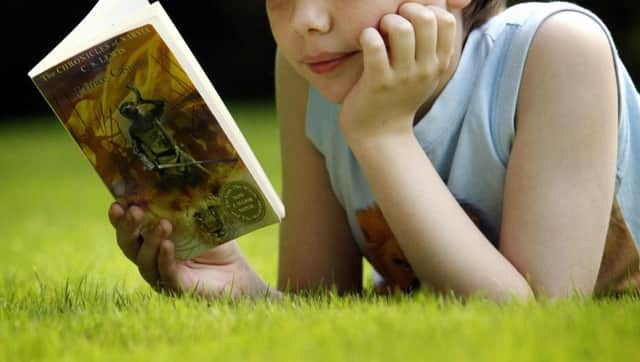Love of a good book could be thing of the past


If those words are taken in their literal sense, then the nation’s children could be in for a rougher ride than previous generations.
Research has revealed that the pleasure of getting lost in a good book could become unknown to many children as some teachers believe youngsters will be less likely to read in the future.
Advertisement
Hide AdAdvertisement
Hide AdIn a poll conducted by education firm Pearson and the Booktrust charity, more than half of school staff – 57 per cent – said they think their pupils read for pleasure less often than they and their classmates did when they were children.
A further two-fifths predict that youngsters will read less in a decade’s time than they do today.
The survey, which questioned more than 500 teachers and librarians about pupils’ reading habits, found signs parents are not encouraging the activity. Of those polled, 64 per cent said mothers and fathers are less involved in motivating children to read than they were 10 years ago.
Peter Hughes, of Pearson, said: “It is our responsibility to help schools in their invaluable work to ensure that reading is given more emphasis in children’s lives.
Advertisement
Hide AdAdvertisement
Hide Ad“Research has shown that a child who reads frequently, and has the support of their parents, carers and teachers, is a child that will achieve their potential.”
But some are sceptical over whether the research means an end to children discovering the joy of reading.
Children’s author Hilary Robinson, based in West Yorkshire, said: “The figures are interesting but I am not sure I agree. Reading habits may be formed in childhood but are not necessarily a reliable basis by which determine whether the child will be an avid reader as an adult.
“My daughters are now 22 and 24 are voracious readers of light and complex novels. Their teenage years were dominated by Big Brother, MSN and Now magazine – I just went with the flow and kept them enthused about books and it paid off.
Advertisement
Hide AdAdvertisement
Hide Ad“Also, the children books sales market out performed the adult book market this year.”
While iPads, smartphones and other gadgets might be blamed for steering youngsters away from the bookshelf, Professor Katherine Ebury, of the University of Sheffield believes modern technology is not necessarily an enemy of the written word.
She said: “It’s undoubtedly true that technology has changed our experience of reading – the ebook revolution has affected parents and children alike.
“Perhaps one reason reading has suffered for children is that children’s books are more adversely affected by the change of format – the pictures and texture of the book are often missing when children read on devices.
Advertisement
Hide AdAdvertisement
Hide Ad“One way this might change for the better is for normal books to become more interactive; another way is for ebooks to become more beautiful.
“Children are also under a lot of pressure in school, with more exams than ever before so are tempted to ‘switch off’ when they get home.
“The good news is that children can still gain a love of language and of narrative, which will lead to a love of reading, from oral storytelling when they are very young.”